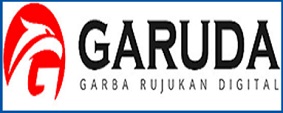Perbedaan Self Wound Care Pasien Diabetes Mellitus Tipe 2 Dengan Pendidikan Kesehatan: Video
DOI:
https://doi.org/10.31004/jn.v8i2.24094Abstract
Diabetes mellitus (DM) is a disease that is a global problem. A person is said to be suffering from DM if their blood sugar level 2 hours after eating is >200 mg/dl. Apart from being a cause of death, DM can also cause various complications, one of which is diabetic ulcers. This type of research is quantitative with quasi-experiment and one group pretest posttest design. The research sample was 30 respondents using consecutive sampling. Data analysis using the paired T test to determine the effect of providing Health Education interventions using audio-visual video media on self-wound care skills. The results showed that respondents' self-wound care skills before the intervention: mean respondent skill score 26, 833, standar deviation D 7.4015, lowest score 15.0 and highest 39. Self-wound care skills after intervention: mean respondent skill score 45, 950 , standar deviation 13.5203, the lowest value 25.0 and the highest 71.5. The results of the paired T test show the effect of health education using videos on respondents' self-wound care skills (Sig 2 tailed 0.000 <0.05). Health education with videos influences respondents' self-wound care skills at the Mumtaza Clinic, Sragen.Downloads
Published
2024-05-27
How to Cite
Sudaryanto, S., & Hando, A. F. . (2024). Perbedaan Self Wound Care Pasien Diabetes Mellitus Tipe 2 Dengan Pendidikan Kesehatan: Video. Jurnal Ners, 8(2), 1335–1341. https://doi.org/10.31004/jn.v8i2.24094
Issue
Section
Articles
License
Copyright (c) 2024 Jurnal Ners

This work is licensed under a Creative Commons Attribution-ShareAlike 4.0 International License.
Authors who publish with this journal agree to the following terms: Authors retain copyright and grant the journal right of first publication with the work simultaneously licensed under a Creative Commons Attribution-ShareAlike 4.0 International License that allows others to share the work with an acknowledgement of the works authorship and initial publication in this journal. Authors are able to enter into separate, additional contractual arrangements for the non-exclusive distribution of the journals published version of the work (e.g., post it to an institutional repository or publish it in a book), with an acknowledgement of its initial publication in this journal. Authors are permitted and encouraged to post their work online (e.g., in institutional repositories or on their website) prior to and during the submission process, as it can lead to productive exchanges, as well as earlier and greater citation of published work (See The Effect of Open Access).







